Sidi Bouabid Sharqi: The engineer of society, the pioneer of Sufism, and the pole who shaped the history of Morocco in his era.
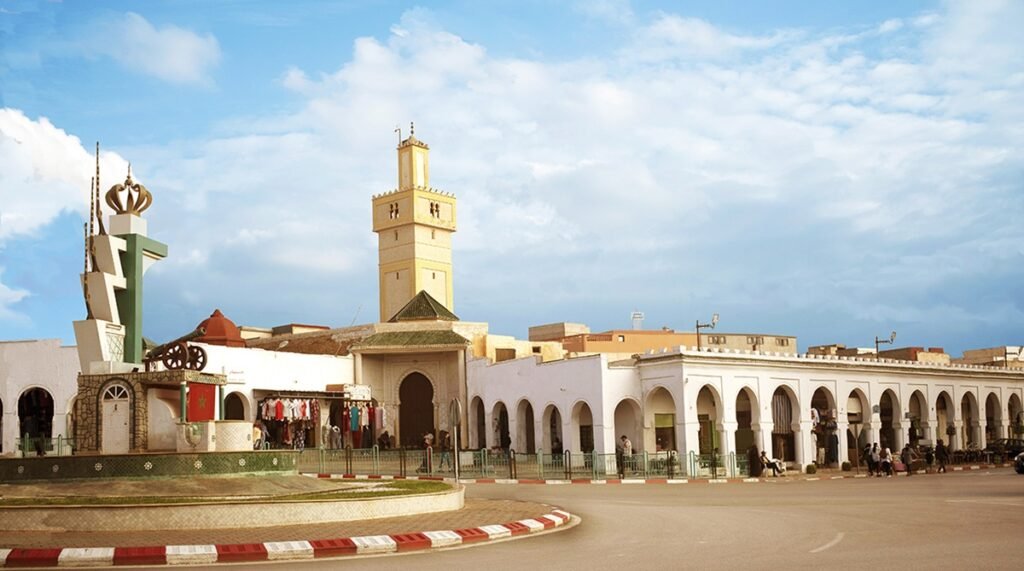
Throughout Morocco's centuries-long history, Sufi zawiyas (religious orders) have played crucial roles at all levels: spiritual, religious, political, social, economic, and beyond. These roles have given these spiritual institutions a place that remains deeply rooted in the consciousness of Moroccans, even those not associated with Sufism. This is expressed through their annual celebrations of religious seasons dedicated to this or that saint. One of the most important of these saints, whose memory remains present in people's minds despite nearly five centuries of their existence, is Sidi Bouabid Sharqi. His full name was Abu Ubaidah Muhammad al-Qasim Sharqi al-Umari, the founder of the Sharqawiyya order in Morocco. He was born between 926 and 928 AH in an area approximately 3 kilometers from Kasbah Tadla and died in Abi al-Ja'd in 1010 AH.
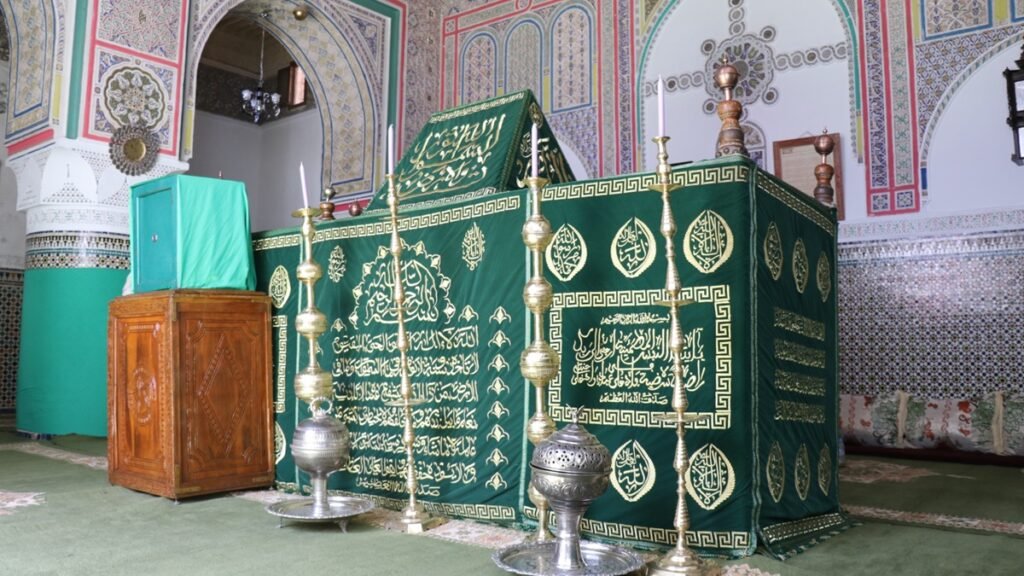
His biography and status:
- His upbringing and education: Sidi Bouabid Al-Sharqi grew up in a household known for its piety and righteousness. His father was Sheikh Abu Al-Qasim bin Muhammad Al-Za'ri. He received his education at the Zawiya of the Minaret, where he studied interpretation, Quranic recitations, hadith, jurisprudence, and Sufism. He also learned the Sufi way from his father and other sheikhs, including Sidi Abdel Aziz Al-Tabbaa, Sidi Muhammad Al-Ghazwani, and Sidi Omar Al-Qastali.
- Establishment of the Eastern Zawiya: Sidi Bouabid al-Sharqi moved to a place called "Abi al-Ja'd," dug a well, and built a mosque and a school. This zawiya became a center of religious and scientific influence, attracting students and disciples from all over the world. Prominent scholars graduated from it.
- His status and role: Sidi Bouabid Sharqi is considered a prominent Sufi figure in Morocco. The zawiya he founded contributed to the dissemination of religious and cultural knowledge. It also played a significant role in social and economic aspects, such as securing roads, protecting caravans, and intervening to quell rebellions.
The significance of Sidi Bouabid Chargui continues today through the annual "Sidi Bouabid Chargui Moussem." This season is not merely a religious celebration; it is a space for Sufism and the revival of spiritual and cultural heritage. It also contributes to stimulating religious tourism and supporting the local economy.
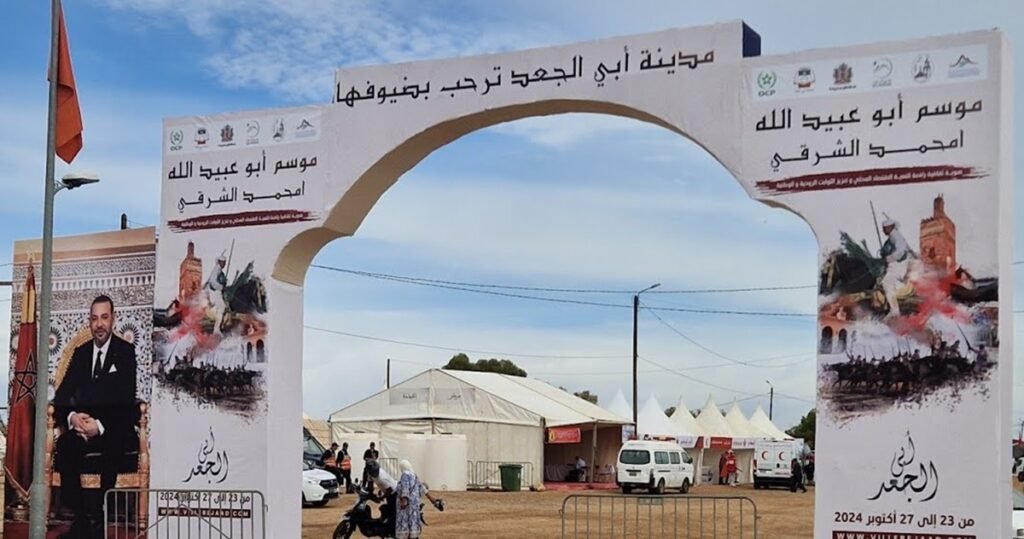
His most important achievements..
Sidi Bouabid Sharqi is known as the founder of the Sharqawiyya Zawiya, his most important and influential achievement. This zawiya represented a comprehensive cultural project whose role transcended religious aspects to encompass social, scientific, and economic aspects. Sidi Bouabid Sharqi's most important achievements can be summarized as follows:
Establishment of the Eastern Zawiya: Sidi Bouabid Sharqi established this zawiya, which became a prominent religious and scholarly center in Morocco. The zawiya served as a school for memorizing the Quran and disseminating religious knowledge, attracting students from various regions.
Building the city of Abi Al-Jaad: The zawiya was not merely a place of worship; it was the nucleus around which the city of Abi al-Ja'd grew. The zawiya and the descendants of Sidi Bouabid al-Sharqi contributed to the urban and economic development of the region by building mosques and wells and developing an irrigation system, transforming the area into a significant cultural and commercial center. The Sharqawi zawiya, which he founded in the sixteenth century, was the nucleus around which the city grew. Over time, the zawiya transformed from a mere spiritual and scholarly center into an urban powerhouse, leading to the formation of a fully integrated city around it.
His social and political influence: The Sharqawiyya Zawiya played a significant role in resolving tribal conflicts and promoting social solidarity. It also played a political role in securing routes, protecting trade caravans, and intervening to quell anti-government uprisings, making it a major player in the region.
These achievements are the main reasons that have strengthened Sidi Bouabid Chargui's status and preserved his legacy to this day through the annual festival held in his honor, which combines religious, cultural, and economic aspects.
Its importance in the history of Morocco..
The importance of Sidi Bouabid Sharqi in Moroccan history during the period in which he lived (16th century AD) extended beyond his role as a Sufi sheikh. It encompassed pivotal roles in building society, ensuring stability, and establishing a unique cultural model. The most important of these roles can be summarized as follows:
His religious and spiritual role
Sidi Bouabid Charqi was a prominent Sufi figure in Morocco, founder of the Sharqawiyya order, an extension of the Jazuliyya Shadhiliyya school. Through his zawiya, he disseminated knowledge, jurisprudence, and moderate Sufism, graduating numerous scholars. This religious role played a pivotal role in reviving spiritual values and deepening Islamic identity in the region.
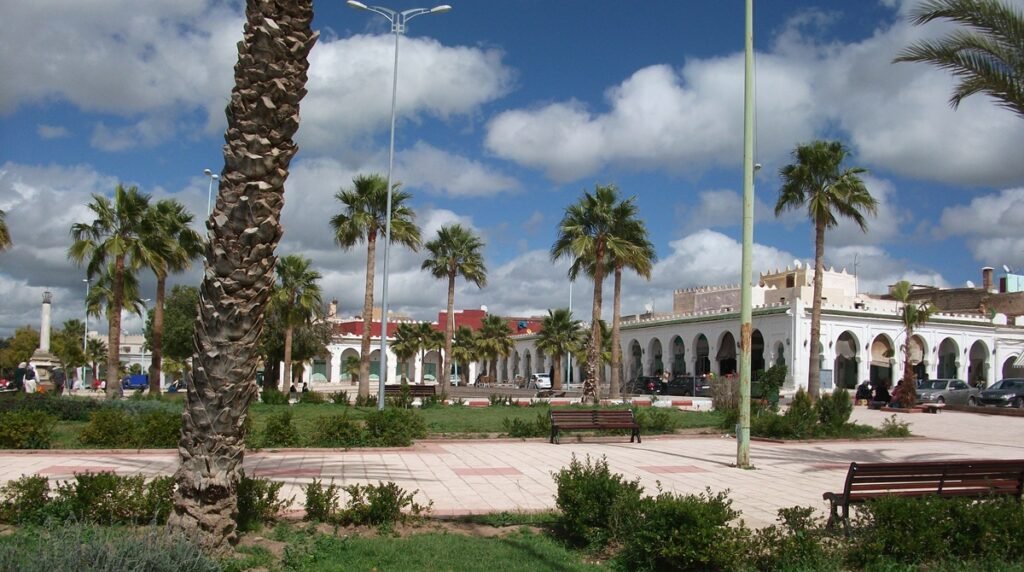
His role in establishing the city of Abi Al-Jaad
Sidi Bouabid Chargui is considered the founder of the city of Abi Jaad, and his zawiya was the nucleus around which the city grew. He transformed a barren area into a thriving cultural center through his efforts in building educational institutions and mosques, and developing infrastructure such as wells and irrigation systems. This achievement reflects the potential of Sufi zawiyas in Morocco to be engines of urban and social development.
His political and social role
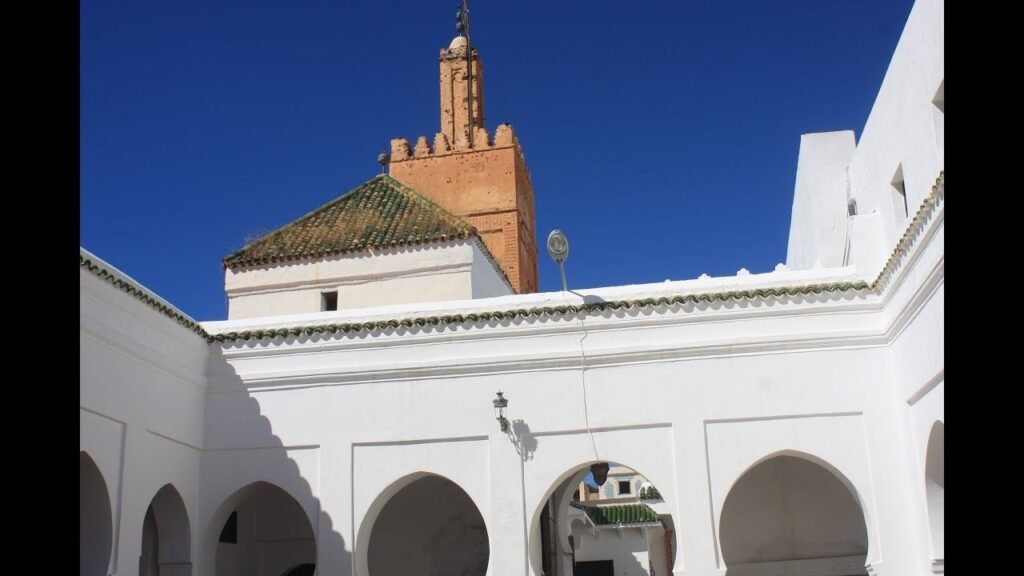
The Sharqawiyya Zawiya gained significant influence, not limited to religion alone, but extending to political and social aspects. This was evident in several aspects:
- Conflict Resolution: The zawiya was a center for arbitration between warring tribes, contributing to security and stability in the region.
- Store support: The zawiya served as a mediator between the tribes and the central authority (the Makhzen), intervening to quell rebellions and contributing to the collection of taxes and zakat. It also received special attention from the sultans of the Alawite dynasty in later periods, confirming its political importance.
- Economic role: The zawiya contributed to securing trade routes and protecting caravans (known as “zatatah”), which strengthened its position as a pivotal economic player in the region and contributed to stimulating trade between cities such as Marrakesh and Fez.
In short, it can be said that Sidi Bouabid Sharqi was not an individual religious figure, but rather a symbol of a Sufi institution that played a multifaceted role in Moroccan history, establishing a religious, social, and political status that made his zawiya an influential cultural force.





